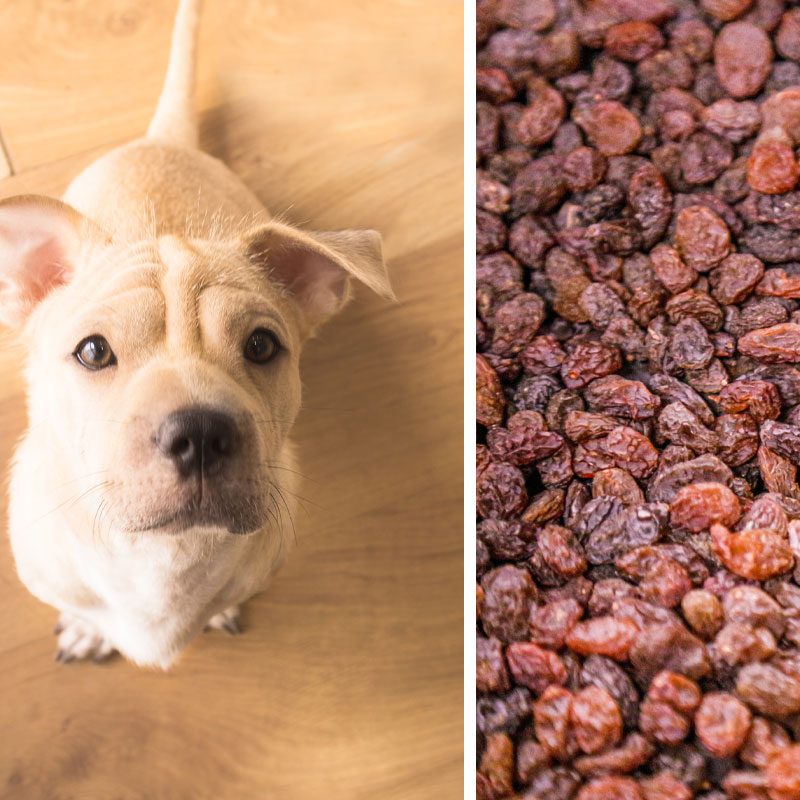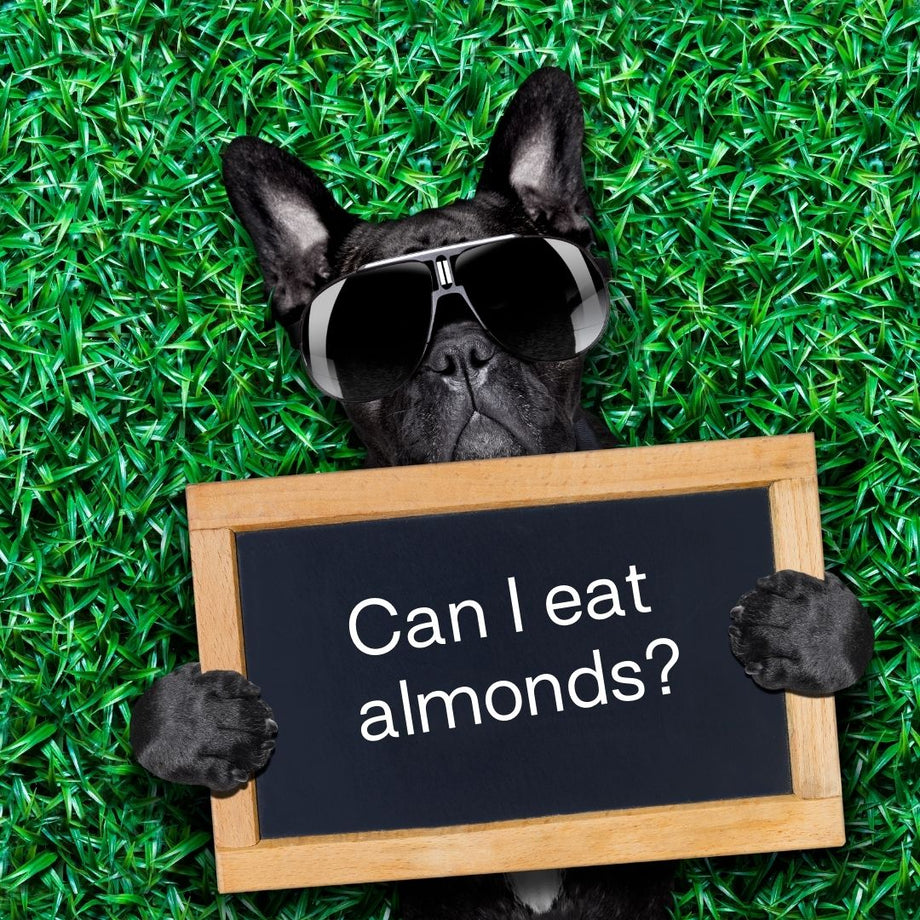Introduction: Understanding Your Dog’s Diet
As a responsible pet owner, knowing what your dog can and cannot eat is crucial for their health. While many pet owners enjoy snacking on dried fruit, the question often arises: Can dogs eat dried fruit, too? Dried fruits may seem like a healthy treat, but it is essential to understand their nutritional content and potential risks. In this article, we will explore various types of dried fruit, their effects on dogs, any health benefits, and safe serving suggestions.
Common Dried Fruits and Their Effects on Dogs
Raisins and Grapes
Raisins and grapes are among the most commonly consumed dried fruits. However, they are highly toxic to dogs. Even small amounts can lead to kidney failure, which can be life-threatening. Symptoms may include vomiting, diarrhea, and lethargy.
Due to the severity of the impact, it is best to keep grapes and raisins away from dogs altogether. If you suspect your dog has ingested these fruits, seek veterinary care immediately. Educating yourself about such dangerous foods can prevent serious health issues down the road.
Dried Apples
Dried apples are generally safe for dogs when given in moderation. They contain essential vitamins like vitamin C and dietary fiber. However, ensure that the dried apples do not have added sugars or preservatives, as these can be harmful.
When feeding dried apples, consider cutting them into smaller pieces to avoid choking hazards. Additionally, monitor your dog for any unusual reactions. As long as your dog enjoys the treat, dried apples can be a healthy option that adds variety to their diet.

Health Benefits of Dried Fruits for Dogs
Nutritional Value
Dried fruits can offer various nutritional benefits for dogs. Many are packed with vitamins and minerals that contribute to overall health. For example, dried apricots are rich in potassium, while dried blueberries provide antioxidants.
Antioxidants are known to support the immune system and combat oxidative stress. Incorporating small amounts of safe dried fruits can enhance your dog’s diet when done correctly. However, moderation is key to prevent excessive calories and sugar intake.
Fiber Content
Fiber is essential for a dog’s digestive health, and many dried fruits contain a good amount. For instance, dried figs can help promote healthy digestion and prevent constipation. Introducing dried fruits in small amounts can increase fiber content in your dog’s diet.
However, it’s important to balance fiber intake, as too much can lead to digestive issues like diarrhea. Always consult with your veterinarian when making significant changes to your dog’s diet. Understanding their unique needs can help you make informed choices.
Risks of Feeding Dried Fruits to Dogs
Sugar Content
Many dried fruits, even those that are safe for dogs, have high sugar content. Excessive sugar can lead to health problems, including obesity and dental issues. Over time, these problems can result in more severe health conditions, such as diabetes.
When offering dried fruits, it’s important to limit the quantity. Consider mixing dried fruit with other healthy snacks or using them as occasional treats. This way, you can minimize risks while still providing enjoyable flavors for your dog.
Allergic Reactions
Like humans, dogs can also be allergic to certain foods, including dried fruits. Signs of an allergic reaction may include itching, swelling, and gastrointestinal upset. If introducing a new type of dried fruit, start with a small amount and watch for any adverse effects.
If your dog shows any symptoms of an allergy, discontinue feeding the dried fruit immediately. Always consult with your veterinarian for advice, especially if your dog has a history of food allergies. Monitoring your pet’s reactions is essential for their well-being.

How to Safely Introduce Dried Fruits
Start Small
When introducing any new food, including dried fruits, it’s best to start small. Begin with a tiny piece and monitor your dog’s reaction for 24 hours. If there are no adverse effects, you can gradually increase the serving size.
Always remember that treats, including dried fruits, should not make up more than 10% of your dog’s daily caloric intake. This helps maintain a balanced diet while allowing for occasional indulgences. A cautious approach ensures that your furry friend remains healthy and happy.
Consult Your Veterinarian
Before making any changes to your dog’s diet, it’s wise to consult your veterinarian. They can offer personalized advice based on your dog’s age, weight, and overall health. They can also help you determine whether your dog is a good candidate for dried fruits.
Veterinarians can guide which fruits are safe and appropriate for your dog’s specific needs. This professional insight can help prevent any potential health risks and ensure that your dog’s diet is well-rounded.
Alternative Treats for Dogs
Fresh Fruits
If you’re concerned about the risks of dried fruits, consider offering fresh fruits instead. Many fruits, such as apples, bananas, and blueberries, are safe and nutritious for dogs when given in moderation. These fresh options often contain less sugar than their dried counterparts.
Additionally, fresh fruits retain more nutrients, making them generally healthier for dogs. When introducing new fresh fruits, cut them into small pieces to avoid choking hazards. Always remove any seeds or pits, as they can pose risks to your dog’s health.
Commercial Dog Treats
Another option is to choose commercially available dog treats specifically designed for canine consumption. Many brands offer treats made from dehydrated fruits that are safe for dogs. These treats often come in portion-controlled sizes, making it easier to manage calorie intake.
When selecting commercial treats, look for those made with natural ingredients and without added sugars or preservatives. Always read the labels to ensure they meet your dog’s dietary needs. This way, you can provide a safe and enjoyable snack for your furry friend.

Creating Homemade Dried Fruit Treats
Making Safe Dried Fruit Snacks
If you’re interested in providing your dog with dried fruit but want to ensure its safety, consider making homemade dried fruit treats. This way, you control the ingredients and avoid any additives that can be harmful. Simply slice fresh fruits like apples, bananas, or blueberries, and place them in a dehydrator or an oven on a low setting. This process preserves the nutrients while eliminating excess moisture.
Homemade dried fruit treats are not only healthier but also provide a fun and engaging way to bond with your pet. Ensure the fruits are cut into dog-friendly sizes to avoid choking. Once dried, store the treats in an airtight container to maintain freshness. By creating homemade snacks, you can provide a delicious, safe option that your dog will love, while knowing exactly what goes into their treats.
Flavorful Combinations for Variety
Another way to keep your dog’s snack time exciting is by combining different fruits for added variety. Combining dried fruits like apples and blueberries can create a unique flavor experience for your dog. You can even mix these dried fruits with other dog-safe ingredients like pumpkin puree or peanut butter to make tasty, nutritious snacks.
By experimentation, you can identify what your dog enjoys most. Always remember to keep portion sizes small, especially with new combinations. Offering varied flavors not only keeps snack time fun but also introduces a broader array of nutrients essential for your dog’s health. Always observe your dog for any adverse reactions when trying new combinations and consult your veterinarian if you have doubts. This way, you can provide tasty, safe treats while making mealtime enjoyable!
Conclusion: Feeding Dried Fruits to Dogs
In conclusion, while some dried fruits can be a healthy addition to a dog’s diet, caution is essential. Understanding which fruits are safe and how to introduce them can help ensure your dog remains healthy. Always avoid grapes and raisins due to their toxicity, and consider alternatives like dried apples and blueberries in moderation.
Fiber and nutritional benefits of dried fruits can enhance your dog’s overall health, but they should never replace balanced meals. Monitoring for allergies and maintaining safe serving sizes is crucial. Consulting your veterinarian before making dietary changes ensures that you’re making the best choices for your dog’s health.
By being informed, you can safely include dried fruits as an occasional treat in your dog’s diet, enriching their culinary experience while ensuring their well-being. Enjoying the journey of exploring new flavors with your furry companion can be a delightful experience for both of you!


